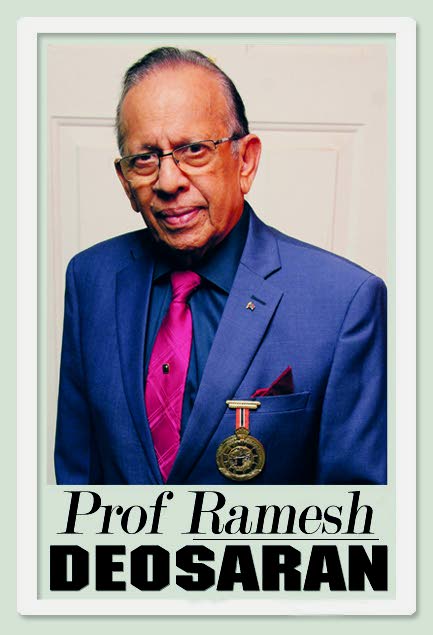Crime, déjà vu and lawyers

When it comes to crime and policing in this country, you cannot help but say déjà vu, déjà vu.
The dictionary defines déjà vu as “an illusory feeling of having already experienced a present situation.”
However, for us, with crime and policing, the feeling is not “illusory.” It is reality.
Last Wednesday morning on radio Power 102 Digital, Independent senator Paul Richards, Richard Ragoobarsingh, Wendell Stephen, Steve Khan and I came to that painful conclusion.
We found almost every public complaint or political promise to solve crime had been made before, repeatedly.
Two-year-old Kimani "Mani" Francis died and others continue to be murdered day and night, bringing the murder total to an unprecedented 204 in less than six months. The daily headlines are frightening.
In 1990, the annual murder rate was around 100.
What went wrong? The country waits to hear what difference Watson Duke, Phillip Alexander, Kamla Persad-Bissessar, etc, could make.
Obviously distressed but unrepentant, the PM mournfully declared: “It’s horrible,” promising a “national consultation.”
But former parliamentary secretary in the ministry of national security Glenda Jennings-Smith helpfully did that already, with the government's National Crime Prevention Plan, in early 2020.
Dr Rowley further promised to treat our “horrible” crimes as “a public health issue.” But the articulate and intelligent PM well knows he promised that some three years ago. He and his government are now paying for present and past mistakes and broken promises.
The repeated quest for overnight solutions has repeatedly failed.
For over 40 years, with all-round blaming, we hear the same promises to bring murders and gang wars down, more police patrols, tightening border entry, more police vehicles, higher detection rate, more laws, etc. Same promises, too, for educational reform and youth crime.
The point is not merely that such concerns and promises are repeated. It is:
1) That political and policy-action promises were previously made as reasons for getting voters’ support. So it is a matter of political integrity.
2) The challenges of crime are indeed complex but new governments and their ministers do not timely develop and effectively implement plans to show measurable results.
So wheels are reinvented: déjà vu.
I have files of several anti-crime proposals, including mine. Crime can be significantly reduced, but as the 2005 anti-crime proposals from the Law Association suggest, government insularity and its shortage of humility frustrate such possibility.
On November 10, 2005, the Law Association, through its distinguished president, Russell Martineau, SC, submitted a 40-point crime plan to then prime minister Patrick Manning's government. The lawyers' plan made important recommendations on legislative reform, improvements to the police, judiciary, etc. The Minister of National Security promised, yes, promised, the association to deal with the recommendations.
However, not seeing anything positive done by the government with the “serious crime situation” at that time, the association, through its new president, the civic-minded SC Martin Daly, wrote to the government on May 26, 2008: “With respect, we are bound to say that the tide of violent crime has risen and we do not consider that the table of information you provided to be a satisfactory response to our proposals.”
Facing government inaction, the frustrated association again wrote: “The association is releasing this material in the public domain in an effort to stimulate further serious discussion.”
Two things here:
1) Government’s inaction and apparent refusal to form a civic partnership for fighting crime.
2) There was no stimulating public discussion. Why?
But it’s more than just repeated concerns, broken promises and government inaction. It is the apparent wastage of taxpayers’ money.
What happened to the $80 million Mastrofski crime and police reform plan, the million-dollar Prof Lawrence Sherman’s “scientific policing” plan, Cambridge University scholarships for police, etc?
Of course, government and the population are now genuinely concerned about crime and policing. And we do hope that hard lessons have been learnt. We must become a learning society.
What acting Police Commissioner Mc Donald Jacob has largely inherited is a package of criminogenic conditions, gang formation, police misconduct and failed plans and promises that have been accumulated under the nose of one government after another. Can he and his police officers make a difference?
The delay in appointing a permanent CoP is a related matter.
But that too has been expensively subjected to déjà vu. Lawyers know that.

Comments
"Crime, déjà vu and lawyers"